Discovery
Overview
Discovery in Veezoo is a unique and powerful feature designed to facilitate the exploration of data in an intuitive, question-oriented manner. It allows the grouping of relevant questions into various topics and categories, providing a guided pathway to uncover meaningful insights, use cases, and functionalities.
How to create it
First, open Studio and click to create a new Discovery file in the Sidebar. When the modal appears, give it a name, e.g. Discovery.
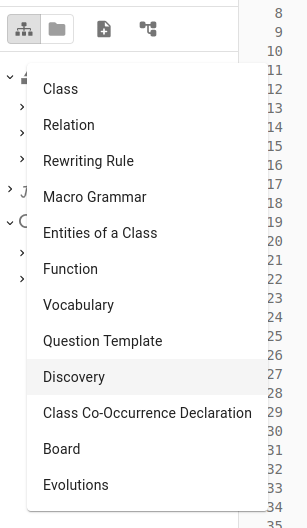
The new file generated will already have an example for you to modify.
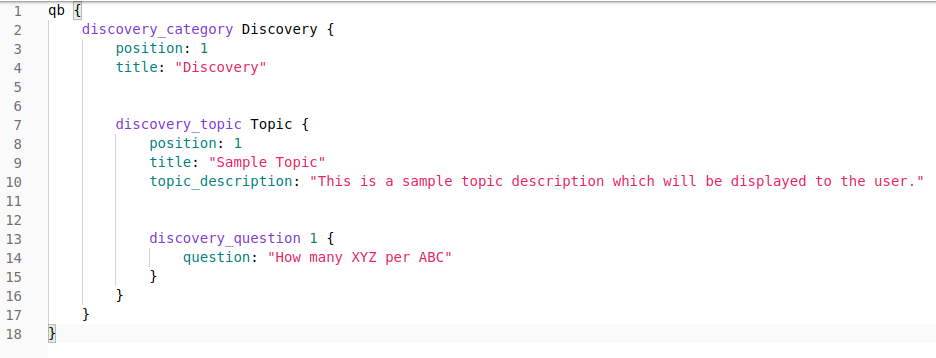
The discovery functionality is defined through a discovery_category containing one or more discovery_topics, each of which may have a number of discovery_questions.
You can navigate through the sidebar to explore the categories and topics you defined.
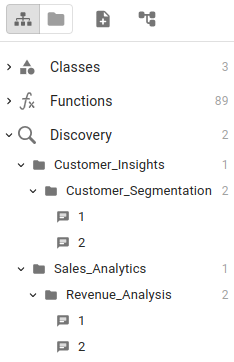
Check the documentation below for more information on how to define your Discovery experience.
How to access it
In the Chat UI, you can access Discovery over the Autocomplete under 'What can I ask?'.
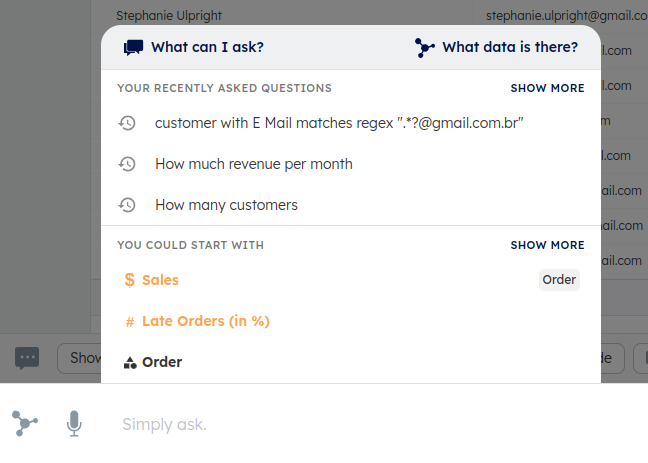
You will see Discovery with the categories and topics you have defined in Studio.
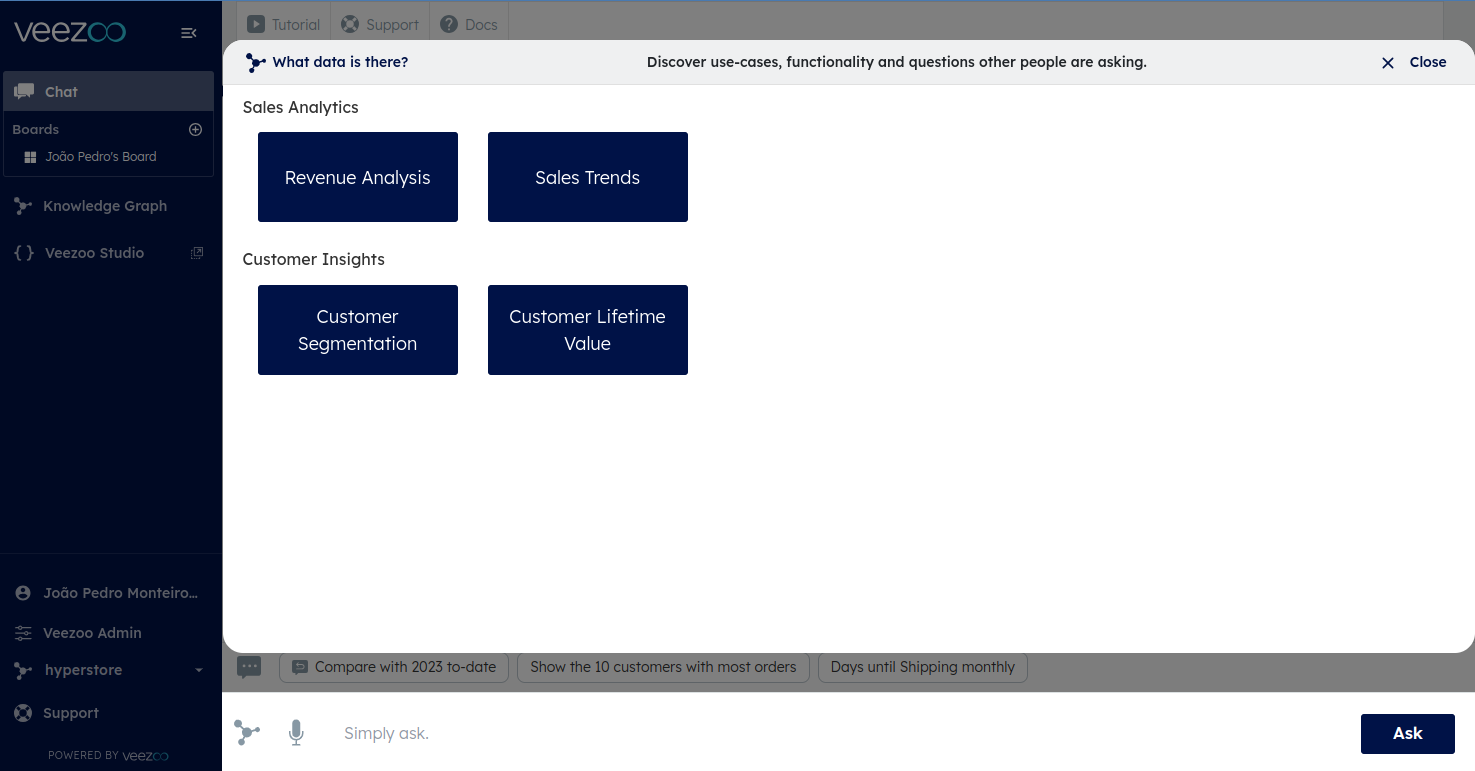
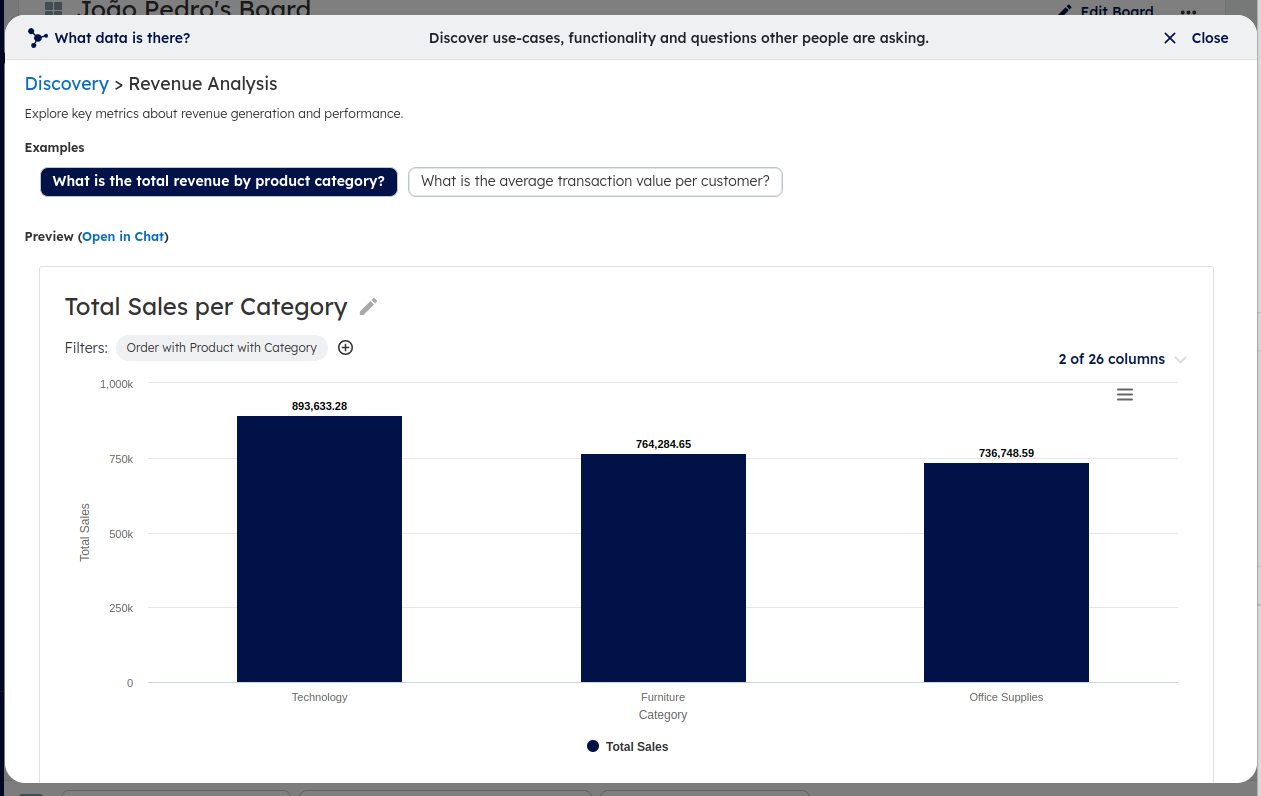
You can click on 'Open in Chat' to bring any answer to your Chat history and continue exploring.
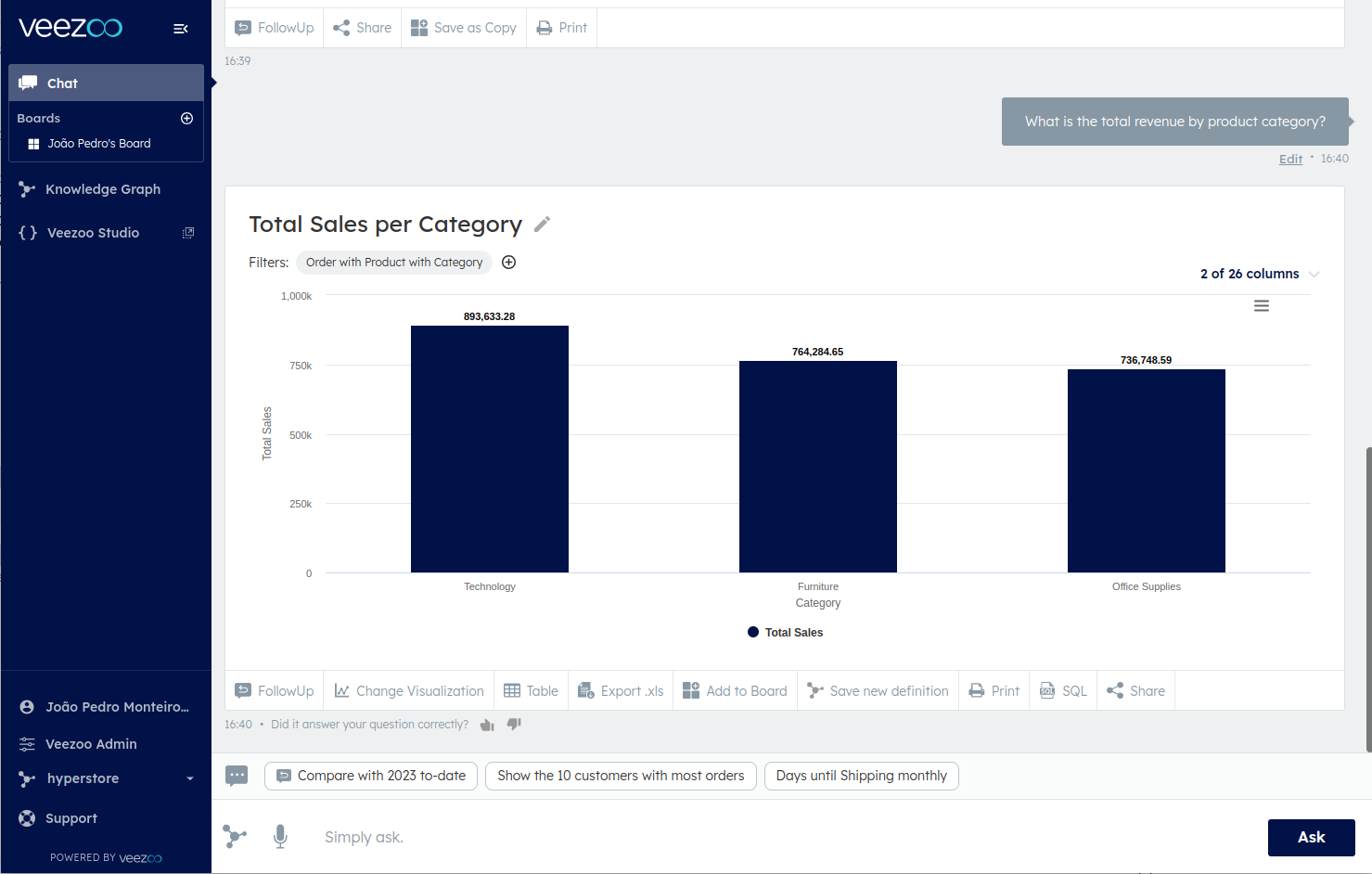
VKL Structure
Here's a brief overview of the structure of the VKL file with the Discovery definition:
discovery_category: The highest level of grouping in the discovery. Each category contains several topics.discovery_topic: Each topic belongs to a specific category and contains a number of related questions.discovery_question: These are the actual questions that users can ask, grouped under a specific topic.
Each of these elements has several properties:
discovery_category
position: An integer that determines the order in which the categories are displayed.title: The title of the category, displayed to the users.
discovery_topic
position: An integer that determines the order in which the topics are displayed within their category.title: The title of the topic, displayed to the users.topic_description: A brief description of the topic, displayed to the users.
discovery_question
position: (Optional) An integer that determines the order in which the questions are displayed within their topic. If not provided, questions are ordered by their natural order in the code.question: The actual question, displayed to the users.
Example
Here is an example of how discovery can be structured in Veezoo:
qb {
discovery_category Sales_Analytics {
position: 1
title: "Sales Analytics"
discovery_topic Revenue_Analysis {
position: 1
title: "Revenue Analysis"
topic_description: "Explore key metrics about revenue generation and performance."
discovery_question 1 {
question: "What is the total revenue by product category?"
}
discovery_question 2 {
question: "What is the average transaction value per customer?"
}
}
discovery_topic Sales_Trends {
position: 2
title: "Sales Trends"
topic_description: "Identify sales trends and patterns over time."
...
}
}
discovery_category Customer_Insights {
position: 2
title: "Customer Insights"
...
}
}
In this example, there's a Sales Analytics category containing a Revenue Analysis topic, which itself contains two questions: "What is the total revenue by product category?" and "What is the average transaction value per customer?". The ordering of the categories, topics, and questions is defined by the position property.
Remember, the Discovery functionality in Veezoo is an excellent way to guide your users in their data exploration journey by providing a set of predefined questions grouped in a logical and intuitive way.